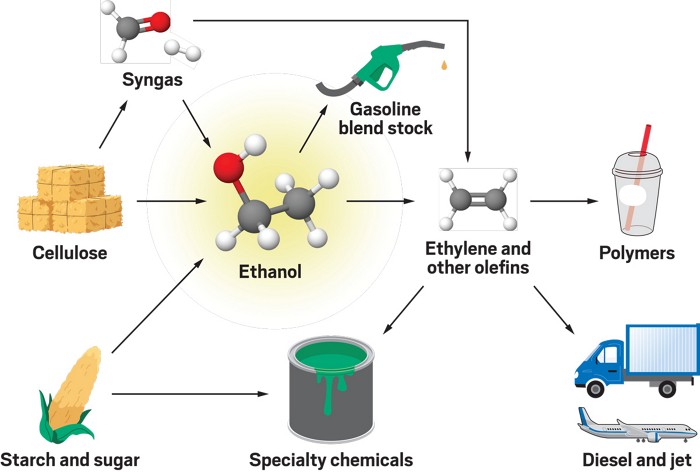
Ethanol
Ethanol, also known as ethyl alcohol, is a colorless, flammable liquid with a distinct, mildly sweet odor. Its ethanol formula is C2H5OH. A versatile compound, ethanol finds extensive use in various industries and household products. It is produced through the fermentation of sugars by yeast or through ethanol synthesis.
As a common recreational beverage, ethanol is found in alcoholic drinks. It acts as a psychoactive substance, affecting the central nervous system, leading to a range of effects from relaxation to impairment. Ethanol is also a crucial industrial solvent, widely utilized in the pharmaceutical, cosmetic, and cleaning industries.
Exploring Ethanol: Frequently Asked Questions (FAQ)

How is ethanol produced?
Ethanol is primarily produced through two main processes: fermentation and ethanol synthesis. In fermentation, sugars derived from plant materials, such as corn or sugarcane, are converted into ethanol by yeast.
What are the main uses of ethanol?
Ethanol has a wide range of applications. One of the most common uses is as a recreational beverage in the form of alcoholic drinks. Industrially, ethanol is a key solvent in the production of pharmaceuticals, cosmetics, and cleaning products.
Is ethanol environmentally friendly?
The environmental impact of ethanol depends on its source and production methods. Ethanol derived from renewable sources, such as sugarcane or corn, is considered more environmentally friendly than ethanol produced from fossil fuels.
Experts Provide
Renewable Fuel Source
Ethanol is hailed as a renewable and sustainable fuel source derived from the fermentation of plant sugars, typically sourced from crops like corn or sugarcane.
Greenhouse Gas Reduction
Ethanol is known for its cleaner combustion compared to traditional gasoline, resulting in reduced greenhouse gas emissions when used as a fuel additive or in ethanol-blended fuels.
Challenges and Controversies
Experts acknowledge challenges associated with using food crops, like corn, for ethanol production. This has led to debates about potential impacts on food prices, land use, and food security.
Contributions to Energy Security
Ethanol contributes to energy security by diversifying the energy mix and reducing dependence on imported fossil fuels. Its production from domestic biomass sources enhances national energy resilience
